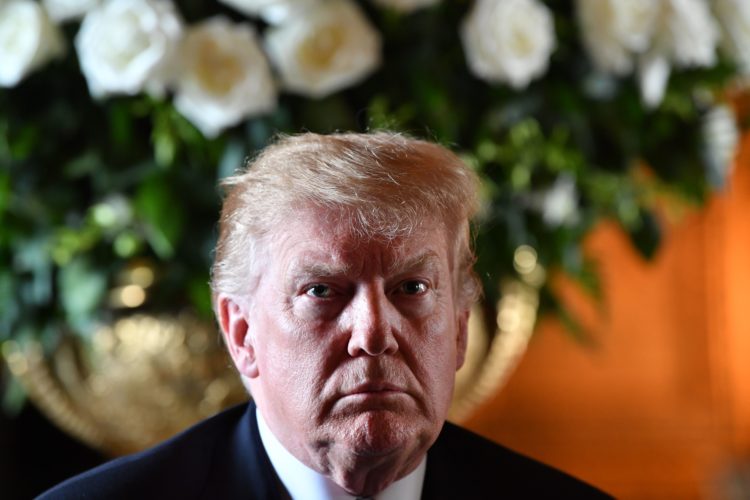Over the weekend, a Chinese woman named Yujing Zhang passed through a Secret Service security checkpoint at Mar-a-Lago, a private resort owned by President Donald Trump, and gained access to the pool, claiming she was there for a swim. At the time, Trump was playing golf while the first lady and other members of his family were present at the resort. Zhang’s story seemed odd and drew extra suspicion from Secret Service agents.
The Secret Service asked to speak with her. Upon searching her belongings they found no swimming attire, but found that she did have a laptop, four cell phones, an external hard drive, and a thumb drive among her belongings. She was then interviewed by a division within the Secret Service known as Protective Intelligence or PI. “The main focus of PI interviews is on opportunity, means, motive, and intent. This division was stood up after the Kennedy assassination and further enhanced after the Reagan attempt,” former Secret Service Agent Bill Gage told NEWSREP.
Now Zhang has changed her story, relating to Secret Service agents that her friend Charles had invited her to a United Nations Chinese-American friendship event. No such event existed, but a man named Charles Lee is known to run the United Nations Chinese Friendship Association, which is not actually affiliated with the United Nations—in fact, it promotes the Chinese communist party, according to the Miami Herald. The fictional event that Zhang claimed to have been invited to was an event advertised on social media by Li Yang, a woman who ran a “massage parlor” in South Florida.
In a recent law enforcement sting, 25 men were arrested for allegedly soliciting prostitution at the Orchids of Asia massage parlor, including Robert Kraft, the owner of the New England Patriots. The women who worked at the parlor may be designated by law enforcement as victims of human trafficking.
It was fast becoming clear to agents during the PI interview that something was amiss with Zhang’s story. Given her possession of a Chinese passport, the Secret Service would have relied on liaisons sent from the PI division to the CIA and NSA, who would further check into Zhang’s background. “These embedded agents act as liaison personnel for these types of incidents, where a name has to be run through the intel community to see if this person is of record within the vast net cast by U.S. intel. People are sometimes mentioned [and] are of record within the CIA/NSA, especially the NSA, which may have electronic intercepts of this person,” Gage explained.
A program exists within the Secret Service for these types of background checks: It’s called Name Check and it enables agents to screen names against NSA databases. The program also enables the Secret Service to continuously monitor the electronic communications of persons, groups, and countries that present a threat to the president and vice president. A preliminary search of Zhang’s thumb drive showed it to be infected with malware, but whether this was a conventional form of malware that exists on millions of computers around the world or something more malicious remains unknown.
The president and his family were likely never in any real danger, as the Secret Service maintains sniffers for biological and chemical agents and deploys a sophisticated suite of electronic countermeasures. Further, the computer system at Mar-a-Lago is closed, with no connection to the highly classified White House system, which means that a malware infection would have little if any impact on the president’s official duties.
Zhang has been charged with making false statements to a federal agent and gaining access to restricted property.
If Zhang’s actions were part of a Chinese intelligence operation orchestrated by the Ministry of State Security (MSS), it was a fairly sloppy one. This would not be that surprising because, although the competency of the MSS has improved in recent years, they’ve missed out on a lot of the human intelligence operations conducted during the Cold War that fostered formidable capabilities within the Russian and American intelligence communities.
The Chinese have made effective use of a what they call qingbao, a word some see as synonymous with both “intelligence” and “information”, as the PRC is able to mobilize a population of a billion people to act as sensors in a great open-source intelligence-gathering network. Still, this only tells part of the story, as the MSS does have their own equivalent of what the CIA would call case officers. The difference is that they generally do not operate overseas and run their agents from afar.
China analyst Peter Mattis at Jamestown disputes the notion that the Chinese take a “mosaic” or “grain of sand” approach to intelligence collection, pointing out that China has had a professionalized intelligence service since 1927 and that this view of Chinese intelligence gathering is the result of poor translations and cultural misunderstanding. Chinese intelligence collection is not done or coordinated by a unitary actor, nor does it have the vertical political integration of, say, the former KGB.
Already have an account? Sign In
Two ways to continue to read this article.
Subscribe
$1.99
every 4 weeks
- Unlimited access to all articles
- Support independent journalism
- Ad-free reading experience
Subscribe Now
Recurring Monthly. Cancel Anytime.











COMMENTS